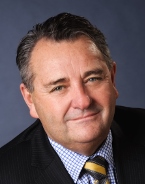In a scathing assessment of the current structure of financial advice in Australia, Connect Financial’s Paul Tynan has called for a radical shake-up of the sector.

Tynan released a statement this week, in which he noted the issues confronting the financial advice sector “…are increasing and intensifying with the vacuum of leadership and direction so clearly evident.”
…it’s the potential and perceived conflict of interest of institutions that simply can’t be avoided
Tynan said the long-term role, viability and relevance of licensees has been under constant question and scrutiny since the inception of the current-day advice model, which he dates back to the development of product platforms in the early 1990s: “No matter how often excuses are spun, it’s the potential and perceived conflict of interest of institutions that simply can’t be avoided,” said Tynan, in what amounted to a damning assessment of conflicted present-day advice practices.
In clarifying to Riskinfo that his reform agenda covered the delivery of all advice solutions, including life insurance, Tynan continued, “From its inception it has been impossible to defend and claim the [current-day advice] process is in the best interest of the consumer and provides unbiased/uninfluenced advice when institutions are both the product manufacturer and owner of the licensee.”
…it is inevitable that individual adviser licensing will be the preferred model
Focussing on how to solve what he sees as this significant problem, Tynan has called for the individual licensing of all advice practitioners: “…as the advice sector moves to a ‘true profession’ the only way forward and the test for the validity of non-institutional influence is through the eyes of the public – and it is inevitable that individual adviser licensing will be the preferred model,” he said.
Tynan said the institutions would not embrace this move as it would necessarily lead to a loss of control and influence on the activities of and recommendations made by advisers: “Ironically the individual adviser AFSL concept will not only be resisted by the institutions because they will lose influence and control of their distribution networks – but also regulators fearing a resultant massive escalation in their workload,” concluded Tynan. He added that within financial institutions “…the shockwave would literally be deafening as they have always operated in a culture and model driven by control – control of products, clients and advisers with the outcome being the current-day industry dominated by a handful institutions that in turn has seen the demise of competition and product innovation.”
Tynan believs that the creation of individual adviser AFSLs would immediately lift the public perception of advice and would be the catalyst for what he refers to as a revolutionary change to the dealer group model, where he says dealer groups would be required to restructure into ‘best of breed’ support businesses in order to compete for individual adviser licensees.
At the same time as calling for individual AFSLs, Tynan also noted the disrupting impact of technology on the sector: “…times are truly changing, and the disruptor across all industries and sectors of the economy is technology that relentlessly challenges business models and out-dated conventions,” he said.
It’s hard to see how (and if) the institutions can respond to the new era of change…
He concluded by expanding on his argument about the importance of embracing new technology into advice businesses and the advice process: “Smaller nimble players and entrepreneurs have always been the quickest to respond to change and adopt new technology and innovation. It’s hard to see how (and if) the institutions can respond to the new era of change that is driven by client centric business models and technology…unfortunately time is not on their side”, concluded Tynan.




I think this is a fantastic idea. I have been under a AFSL of two of the big instos in the past and it is unbelievable really that they can get away with pushing their Wrap product and making it very difficult or impossible to recommend anything else. This was a major sticking point with me that I couldn’t truly sit in front a client and say “from the research we have conducted, this is the best product for you”, which fits with best interests practice.
IanD – .I think your statement to the client sums it up best. Who is going to conduct the research to choose products that will likely be best. I’m not one of them, but I have no doubts there are many advisers out there who do not have the knowledge or competence to do this, or frankly, the time or interest. Without large dealer groups you likely won’t have investment committees and won’t have a structured and researched APL to hide behind. Just back to picking your favorites. Perhaps this is a minor concern, but surely best interest duties come into play here.
Again we have a sledgehammer solution being proposed to the problems of our industry. I agree with the concerns raised with how some AFSL’s operate but the market already provides advisers and clients alternatives that don’t have these issues. Why do people persist in regulating everything when the market does a far better job in a lot of the cases?
Comments are closed.